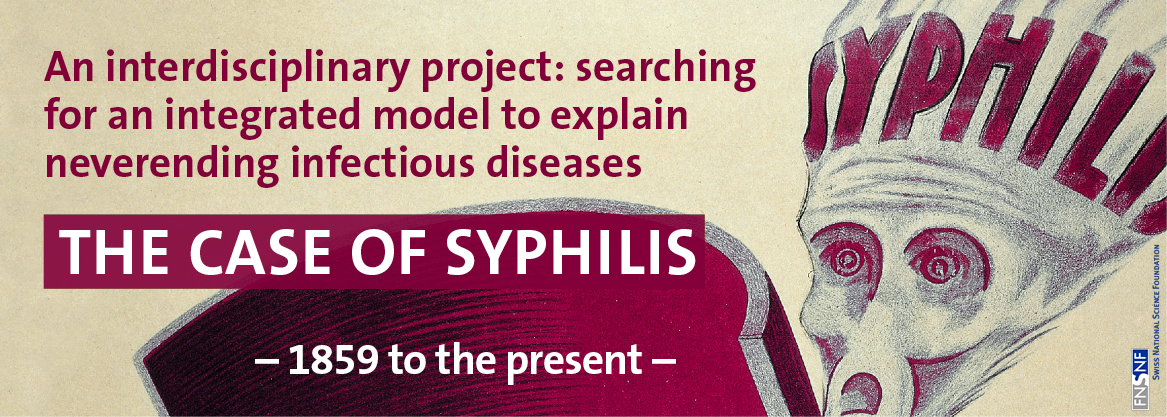
Our question: Some old infectious diseases, whose workings and treatments are in principle known, are not disappearing, and sometimes their incidences are even increasing again. Why and how do these diseases challenge our medical modernity?
Our objective: To produce an original model bringing together factors susceptible of explaining the paradox of non-eradication (under the WHO definition) of these infectious diseases.
Our hypothesis: This paradox can only be explained by an interdisciplinary approach, combining medical, scientific, historical and cultural perspectives, and embedding bio-medical and epidemiological knowledge in a long chronology of social, cultural and political responses to the disease.
Our research focus: We are working on the exemplary case of syphilis, a socially “shameful” disease with varied clinical manifestations and a complex biology, and which has been re-emerging some 70 years after the penicillin miracle.
Project Leaders: Prof. Alexandre Wenger, Dr. Laurence Toutous-Trellu, Prof. Christian Bonah.

